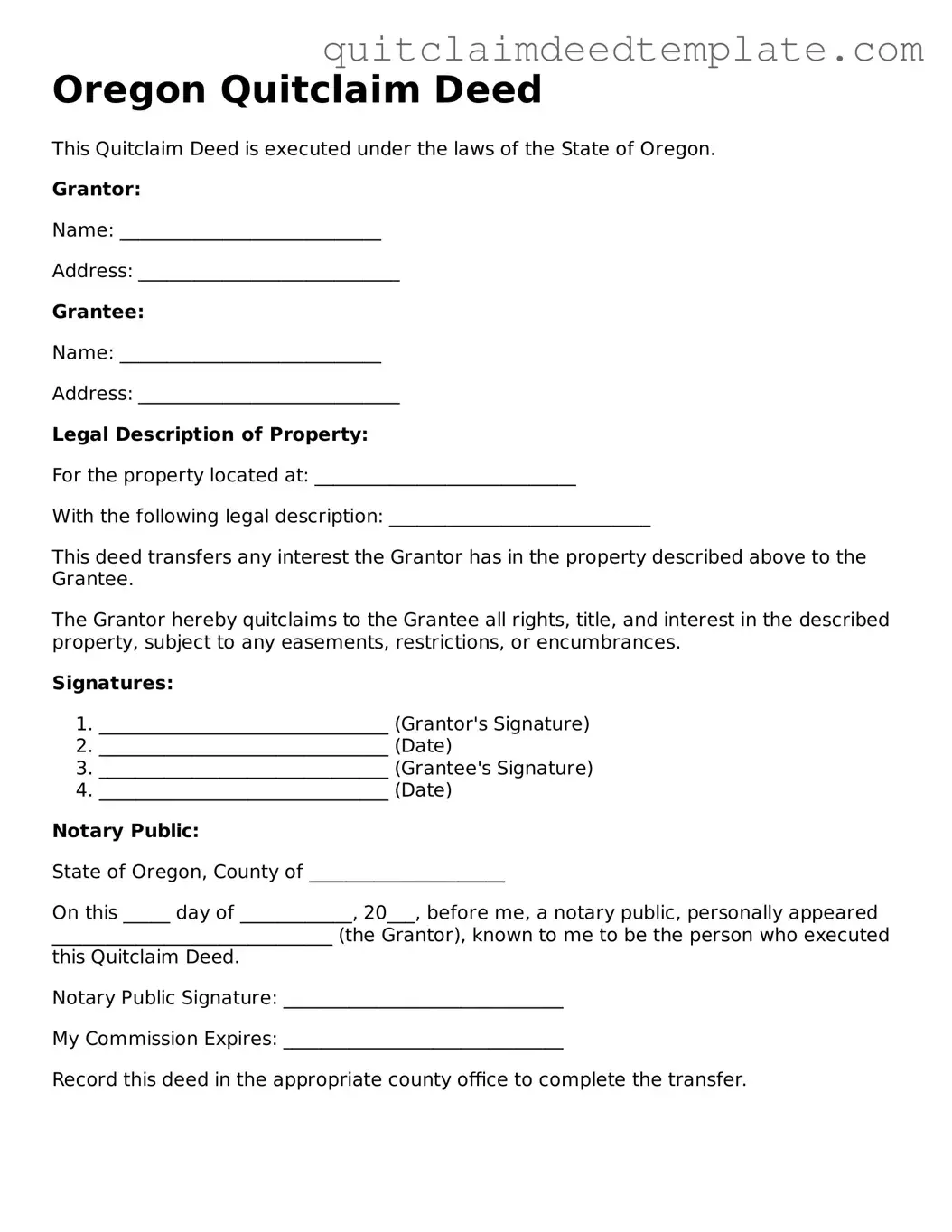Documents used along the form
When transferring property ownership in Oregon, the Quitclaim Deed is often accompanied by several other important documents. Each of these forms serves a specific purpose in the property transfer process, ensuring that all legal requirements are met and that the transaction is properly recorded.
- Property Transfer Tax Statement: This form is required to report the sale price of the property and calculate any applicable transfer taxes.
- Affidavit of Property Value: This document provides a sworn statement regarding the value of the property being transferred, which may be necessary for tax assessment purposes.
- Title Report: A title report outlines the ownership history of the property, revealing any liens, encumbrances, or claims against it.
- Grant Deed: Unlike a Quitclaim Deed, a Grant Deed provides a guarantee that the grantor holds clear title to the property, offering more protection to the buyer.
- Purchase Agreement: This contract outlines the terms of the sale, including the purchase price and any contingencies, ensuring both parties agree before the transfer occurs.
- Disclosure Statement: Sellers often provide this document to disclose any known issues with the property, such as structural problems or environmental hazards.
- Power of Attorney: If the property owner cannot be present for the signing, a Power of Attorney allows another person to act on their behalf in the transaction.
- Notarization Affidavit: This document certifies that the signatures on the Quitclaim Deed were witnessed by a notary public, adding an extra layer of authenticity.
- Recording Request: This form is submitted to the county recorder's office to officially record the Quitclaim Deed and any associated documents, making the transfer public record.
Utilizing these forms alongside the Oregon Quitclaim Deed can help streamline the property transfer process and ensure compliance with state regulations. Each document plays a crucial role in protecting the interests of both the buyer and the seller.
